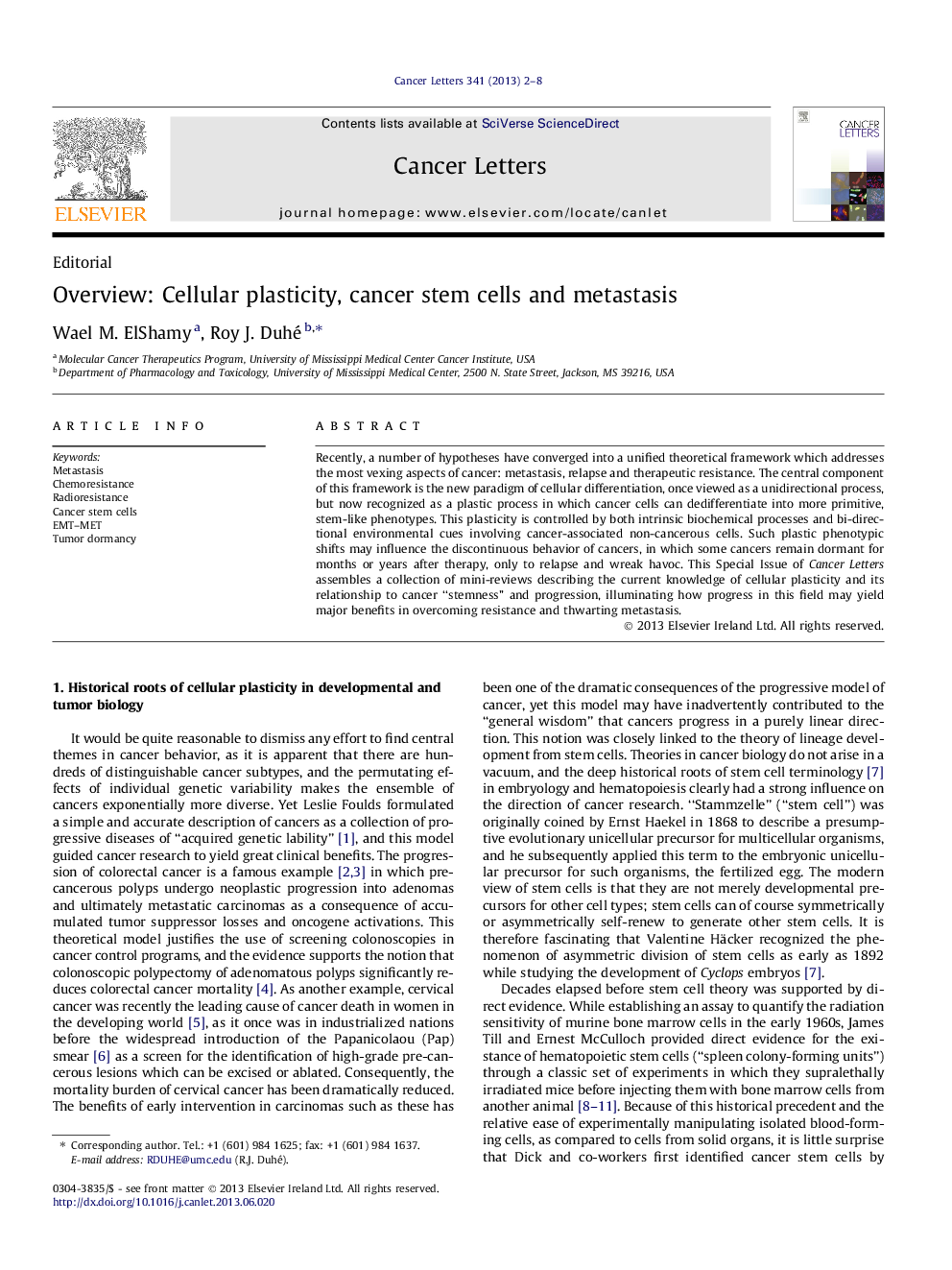| Article ID | Journal | Published Year | Pages | File Type |
|---|---|---|---|---|
| 2112724 | Cancer Letters | 2013 | 7 Pages |
•The history of cellular plasticity is rooted in developmental and tumor biology.•Plasticity unifies the concepts of metastasis, relapse and therapeutic resistance.•Microenvironmental cues and intracellular signals regulate cellular plasticity.•Cellular plasticity and "stemness" are interrelated cancer biology concepts.•Many, if not most, of the proposed tenets remain to be clinically validated.
Recently, a number of hypotheses have converged into a unified theoretical framework which addresses the most vexing aspects of cancer: metastasis, relapse and therapeutic resistance. The central component of this framework is the new paradigm of cellular differentiation, once viewed as a unidirectional process, but now recognized as a plastic process in which cancer cells can dedifferentiate into more primitive, stem-like phenotypes. This plasticity is controlled by both intrinsic biochemical processes and bi-directional environmental cues involving cancer-associated non-cancerous cells. Such plastic phenotypic shifts may influence the discontinuous behavior of cancers, in which some cancers remain dormant for months or years after therapy, only to relapse and wreak havoc. This Special Issue of Cancer Letters assembles a collection of mini-reviews describing the current knowledge of cellular plasticity and its relationship to cancer “stemness” and progression, illuminating how progress in this field may yield major benefits in overcoming resistance and thwarting metastasis.
